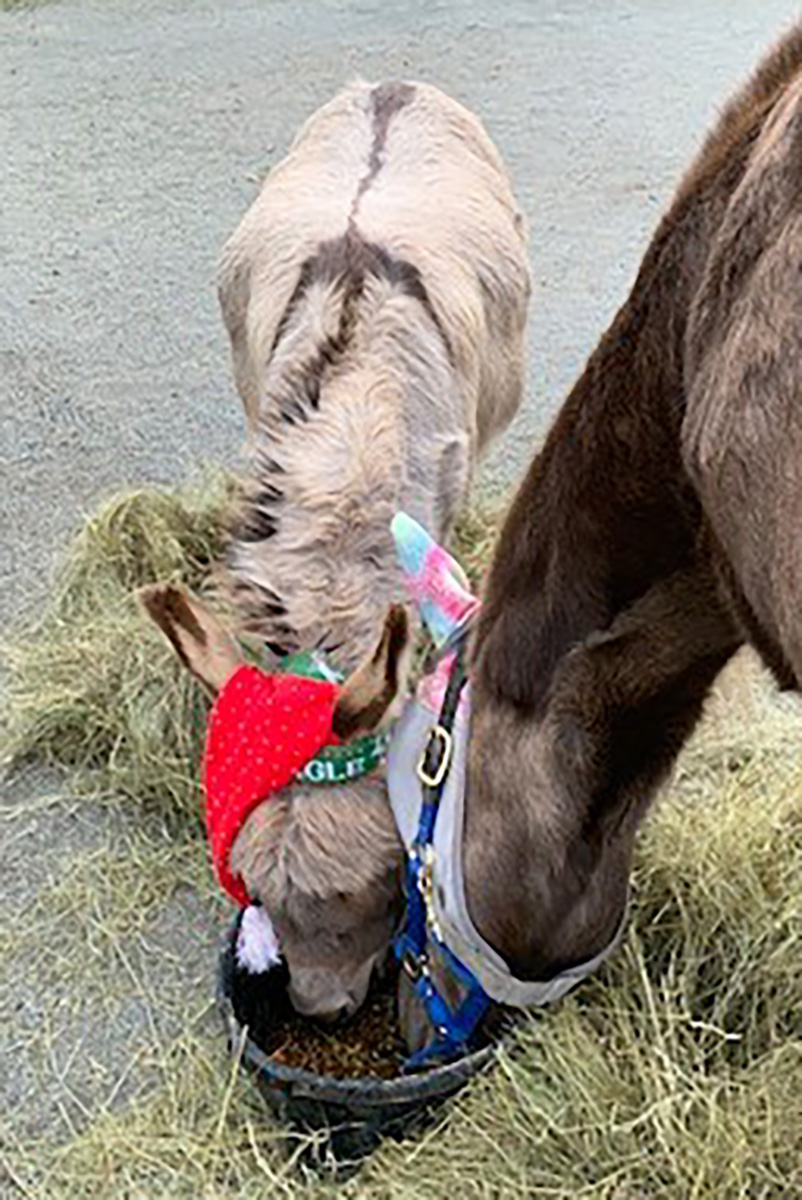Rocky Mountain mare depends on seeing eye donkey for emotional support and guidance
March 4, 2022

Chance, a 26-year-old Rocky Mountain mare owned by Monika Robertie from Nokesville, Virginia, visited the equine medical center to evaluate her left eye. Her trusted companion, a donkey aptly named Donkey, accompanied her on her visit to the hospital.
Back in 2012, Chance had her right eye removed (enucleated) and since then had been suffering from left side recurrent uveitis. The right orbit had healed well after removal of the right eye, but her left eye had mild active, serous discharge and showed mild involuntary tight closure of the eyelid (blepharospasm). She did have menace, dazzle, and normal direct pupillary light reflex (PLR) response, but her left eye had not improved since her last visit in Oct. 2021 and showed chronic evidence of recurrent uveitis.
Due to Chance’s evident discomfort, after she failed to respond to medical therapy and evidence of active and chronic inflammation to the left eye, it was decided that removal of the remaining eye would be the best option for her. Chance was admitted to the hospital and started on intravenous Banamine for pain management and preoperative antibiotics.
Chance was positioned in an equine stock for the procedure, and under standing sedation and local analgesia, her left eye was removed via a transpalpebral (eyelid incision) approach. After surgery, the incision was sutured, and an Elasticon head bandage fitted.
Chance recovered well from standing sedation and was gently led back to her stall with the help from her companion Donkey, who had previously been fitted with a small brass bell as an audible guide for Chance.
Once back in the hospital stall, Chance was very anxious when touched or handled and stayed in close contact with Donkey. Overnight, Chance ate well, passed normal manure, and was ready to be released for continued at-home care the following day.

Once home, Chance initially needed gentle guidance to her feed and water buckets while familiarizing herself with her environment. Her companion Donkey kept close to her, guiding Chance with the sound of the bell fitted to his neck strap. Keeping Chance in her familiar environment was imperative as she adjusted to her lack of vision. Because she was overly sensitive and likely to spook easily, she needed careful handling.
“Chance is doing very well, and her eye socket has healed nicely. She is becoming more accustomed to being completely blind and is using her hearing and sense of smell.” Monika explained and shared, “The staff at Marion duPont Equine Medical Center are exceptional. From the ladies who answer the phone, scheduling, and of course, the veterinarians and veterinary technicians.
“Dr. Brown is kind and knowledgeable. He even backed up my trailer to the ramp for Chance and Donkey, and they loaded smoothly. Chance is now pain-free, and life is good on the farm.
“Thank you to your entire staff.”







